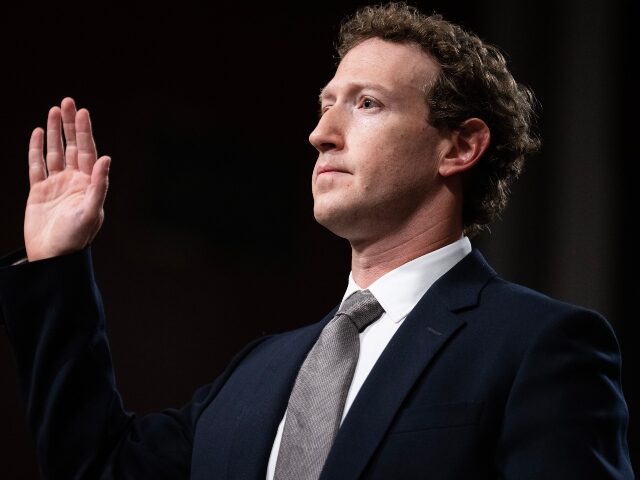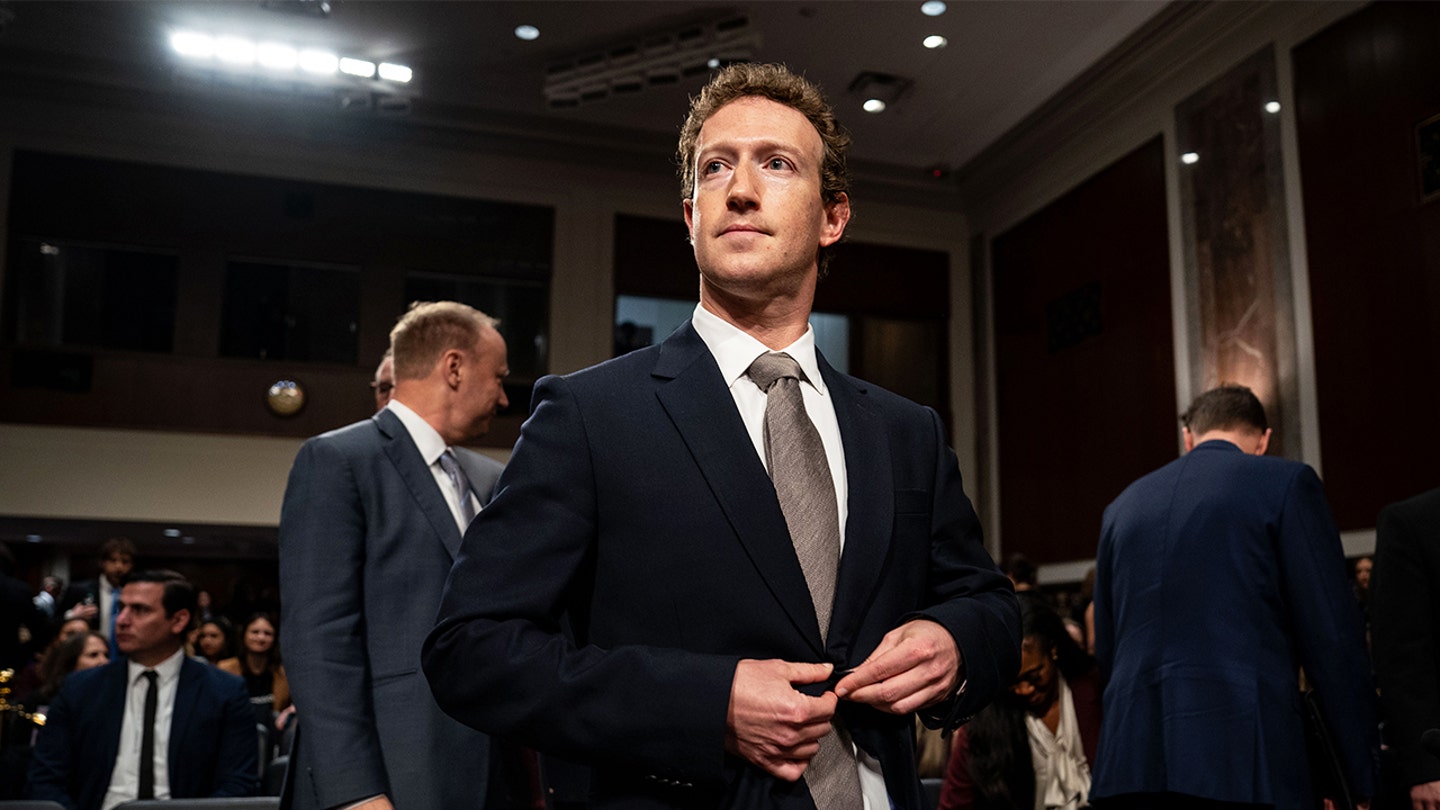Mark Zuckerberg has announced major changes to Meta’s content moderation policies and practices on Facebook and Instagram, citing a desire to embrace free speech and avoid censorship. Zuckerberg’s changes began with scrapping Facebook’s third-party “fact check” system, which is notorious for its leftist bias.
Zuckerberg has had an epiphany.
Is it a moral moment of enlightenment?
Or is it something or someone else?
Regardless of the motivation, Mark Zuckerberg is rushing to fix his leftist leaning, censoring internet platforms.
An epiphany is a sudden realization or moment of understanding that allows someone to see a situation from a new perspective.
This is likely a bit of both.
Be informed, not misled.
An epiphany is a sudden realization or moment of understanding that allows someone to see a situation from a new perspective.
Meta, the parent company of Facebook, Instagram, and Threads, is undergoing a major overhaul of its content moderation practices. CEO Mark Zuckerberg announced yesterday that the company will end its fact-checking program, plagued by severe leftist bias, and replace it with a community-driven system similar to X’s Community Notes. The changes come as a response to what Zuckerberg perceives as a “cultural tipping point” towards prioritizing speech, influenced by the recent elections.
In his video, Zuckerberg states: “We’re going to get back to our roots and focus on reducing mistakes, simplifying our policies and restoring free expression on our platforms. More specifically, here’s what we’re going to do. First, we’re going to get rid of fact checkers and replace them with community notes similar to X, starting in the U.S.”
So, he is being influenced by Elon Musk and the changes he has made to "X," formerly Twitter since he bought the platform.
In a press release, Joel Kaplan, Meta’s Chief Global Affairs Officer, said, “Meta’s platforms are built to be places where people can express themselves freely. That can be messy. On platforms where billions of people can have a voice, all the good, bad, and ugly are on display. But that’s free expression.”
Then he made this admission:
In recent years we’ve developed increasingly complex systems to manage content across our platforms, partly in response to societal and political pressure to moderate content. This approach has gone too far. As well-intentioned as many of these efforts have been, they have expanded over time to the point where we are making too many mistakes, frustrating our users, and too often getting in the way of the free expression we set out to enable. Too much harmless content gets censored, too many people find themselves wrongly locked up in “Facebook jail,” and we are often too slow to respond when they do.
We want to fix that and return to that fundamental commitment to free expression. Today, we’re making some changes to stay true to that ideal.
The article is quite long and detailed, but here are the main points:
- Starting in the US, we are ending our third-party fact-checking program and moving to a Community Notes model.
- We will allow more speech by lifting restrictions on some topics that are part of mainstream discourse and focusing our enforcement on illegal and high-severity violations.
- We will take a more personalized approach to political content so that people who want to see more of it in their feeds can.
Kaplan concludes with this confession:
These changes are an attempt to return to the commitment to free expression that Mark Zuckerberg set out in his Georgetown speech. That means being vigilant about the impact our policies and systems are having on people’s ability to make their voices heard, and having the humility to change our approach when we know we’re getting things wrong.
Why is all this important?
First, it's important because free speech is important. Censorship strikes at the heart of freedom.
Censorship also strikes at the heart of the Great Commission. Yet it was during a reign of censorship and great persecution of Christians by the Roman Empire that the Early Church was born.
Ever since Trump was elected, the Facebook founder has been taking steps, appearing to move away from favoring left-wing content and suppressing posts of political opponents, an about-face for a company that once censored the president-elect himself.
In 2021, Meta kicked Trump off their platforms, pointing to "his praise for people engaged in violence at the Capitol" on January 6. The temporary suspensions elapsed, and Meta reinstated Trump's accounts two years later with "new guardrails in place to deter repeat offenses."
At the time, Nick Clegg, then the head of global affairs at Meta, warned: "We just do not want — if he is to return to our services — for him to do what he did on January 6, which is to use our services to delegitimize the 2024 election, much as he sought to discredit the 2020 election." Clegg claimed that Trump's online presence posed "a serious risk to public safety." Still, after consulting with so-called "experts" to assess whether the "risks" have receded, the company decided he can come back at the end of this evaluation period.
Meta just replaced Clegg last week, promoting the company's most prominent conservative executive, Joel Kaplan, to take Clegg's position. Kaplan, a Republican operative, previously served in George W. Bush's administration as White House deputy chief of staff for policy.
Zuckerberg, who met with Trump at Mar-a-Lago and publicly congratulated him on his 2024 triumph, is among a handful of Big Tech billionaires lining up to kiss the ring. Meta also donated to Trump's inauguration fund after Zuckerberg personally directed Meta to make the $1 million donation.
Meta is now implementing major policy changes concerning content moderation. To "restore free expression," Meta is scrapping its current fact-checking program, which will be replaced by a user-friendly system similar to X's Community Notes.
Meta will also remove a number of restrictions on certain topics, such as immigration and gender, that Zuckerberg said are "just out of touch with mainstream discourse." Zuckerberg said these content constraints, which he acknowledged are used to shut down differing opinions, have "gone too far."
Additionally, the company's Trust and Safety teams, which work out of California, will be moved to Texas.
Takeaway
"This is a great opportunity for us to reset the balance in favor of free expression," Kaplan told "Fox & Friends."
Kaplan also said Meta sees "partnership opportunities" with the Trump administration, not only on free expression issues but also in "promoting American business and America’s technological edge."
"Those are issues of great importance to Meta and our sector," Kaplan told Fox News Digital. "And we’re excited to work with the Trump administration to advance those goals."
Of course, they are.
Leaders lead. Many politicians are not leaders, they're, unfortunately at best, people who find their place in the crowd.
Fortunately, America elected a leader, not a politician, in this election.
Be Informed. Be Discerning. Be Vigilant. Be Engaged. Be Prayerful. Be Blessed.


